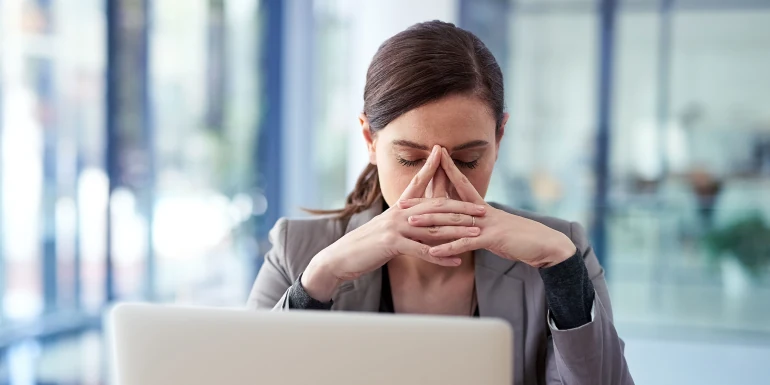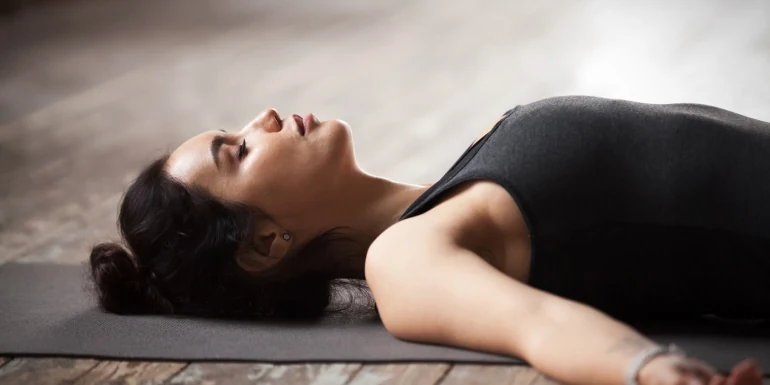
Tips for coping with stress
These coping strategies can help you better handle stress and pressure.
Think positive
Try to think about the future in a relaxed and positive way. Very few things end in catastrophe. Each time you start to ruminate, tell yourself "stop!" and remind yourself of what's essential. Keep asking yourself: "What is positive about the situation?" and "What can I learn from this?" Believe in your own strength. Sometimes it helps to observe optimistic people. How do they respond to difficult situations? Take them as role models.
Say goodbye to perfectionism
Let go of the idea that you have to do everything perfectly. Instead, approach things efficiently. Aim for a good result, not an excellent one. Tell yourself: "I am allowed to make mistakes", "Sometimes less is more" or "I do my best and look after myself". Write down the sentence that most appeals to you on a piece of paper and display it in a place where you will often see it – for example, on your computer.
Change your perspective
Looking at stressful situations from a new perspective lets you make a fresh assessment. Try to change your usual mindset more often. This will make you both more creative and more relaxed. Try to pass fewer judgements and take a favourable view of things. Put yourself in someone else's shoes. This helps to open your horizons and promote empathy for others.
Do you often feel stressed in everyday life? The “Stress management” programme will help you to recognise when you are stressed. You’ll learn how to better cope with negative stress factors.
Get some distance
Let go of everything over which you have no control. This will automatically reduce stressors that lead to illness. You don't have to have a handle on everything at all times. On the contrary. You can also make things easier for yourself. Let go and accept your limits. Distract yourself from things that you can't change – for example, with a trip to a place you've never visited.
Get yourself organised
Good time management contributes to relaxation. Don't try to complete your tasks as quickly as possible, but with as little effort as possible, and without stress. It is helpful to have a list of pending matters, ordered by priority and deadline. Complete the unpleasant tasks first. Then you will find the others easier. Break down large tasks into smaller steps and complete them over several days. And always finish one task before moving on to the next.
Maintain friendships
According to research, socialising with others is the most important stress buffer of all. In social interactions, the body produces opioids (neurotransmitters) that serve to reduce pain, as well as anxiety and stress. Inversely, physical stress symptoms become especially pronounced when there is a lack of social support. This is why you should regularly make time for your friends and family.
Enjoy yourself
Free time does not always mean "free time". Doctor's visits, bureaucracy and other obligations on free days do not really help to relax us. So, you should always keep a window of free time open for things you really like to do. Devote yourself to your hobby. Playing music, painting and cooking are ideal for reducing stress. Or take a walk in the fresh air: this releases the excess energy that builds up through stress.
Combat stress with mindfulness:



Newsletter
Find out more about current health issues every month and get all the information you need about our attractive offers from all Helsana Group companies * delivered by e-mail to read whenever it suits you. Our newsletter is free of charge and you can sign up here:
We did not receive your information. Please try again later.
* The Helsana Group comprises Helsana Insurance Company Ltd, Helsana Supplementary Insurances Ltd and Helsana Accidents Ltd.